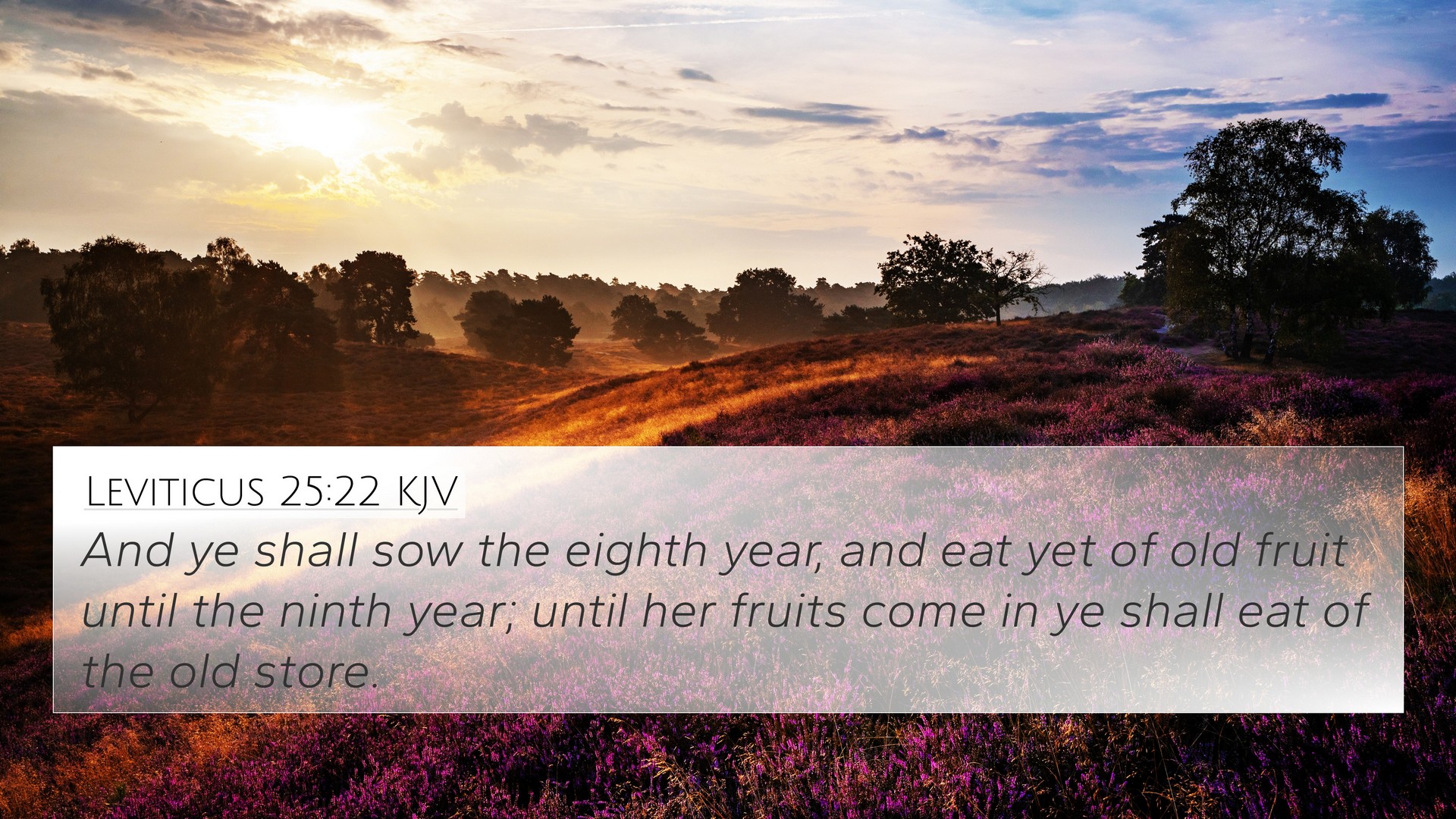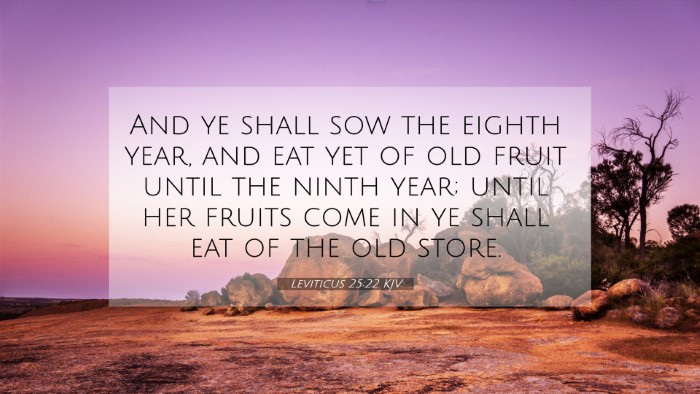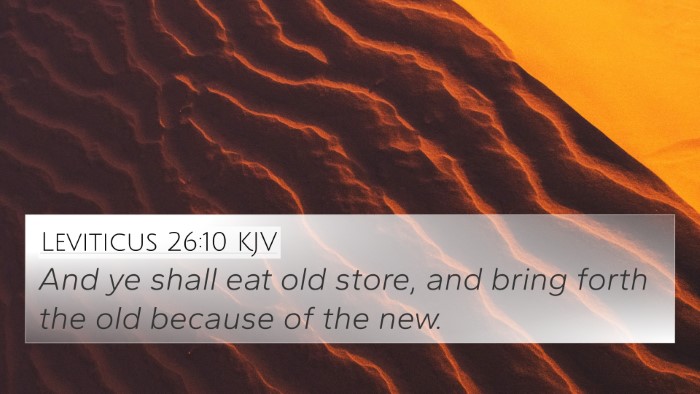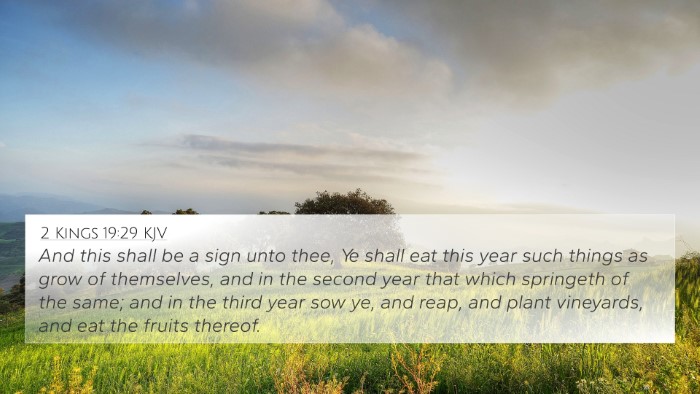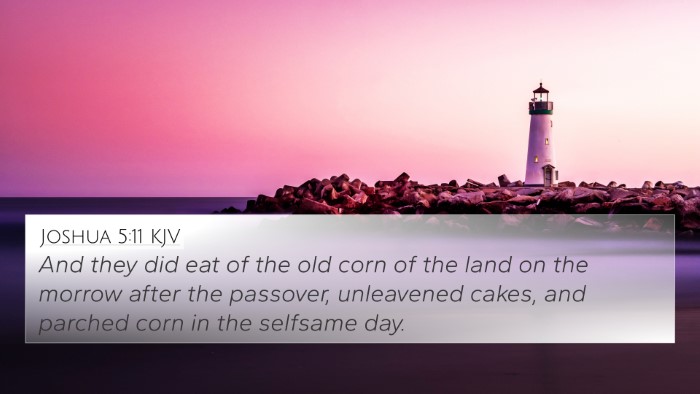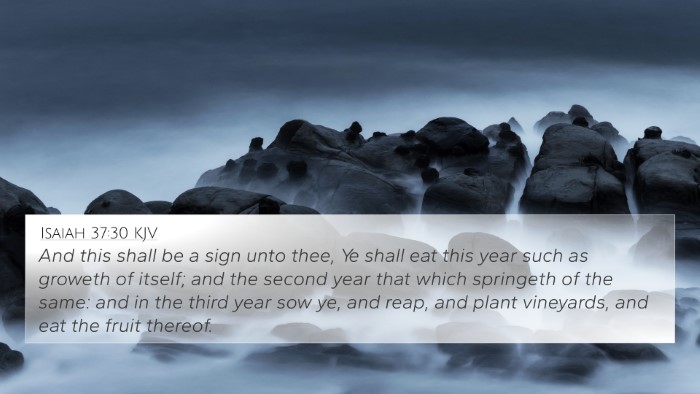Understanding Leviticus 25:22
Leviticus 25:22 states, "And ye shall sow the eighth year, and eat yet of old fruit until the ninth year; until her fruits come in ye shall eat of the old store." This verse highlights the agricultural practices mandated for the Israelites, particularly emphasizing the Sabbath year and the faithfulness required from them in terms of reliance on God's provision.
Summary of Meaning
This scripture is part of the broader context of God's instructions on sabbatical years, which emphasizes the cycles of work and rest in agricultural practices. The Israelites were to allow the land to rest during the seventh year, and this verse reassures them that God's provision would carry them through until the harvest of the ninth year.
Insights from Public Domain Commentaries
-
Matthew Henry:
Henry emphasizes the importance of trust in God's provision. He points out that even when they are not actively sowing crops, God will ensure that there will be food available. This highlights a central theme in the Bible: faith and dependence on God for sustenance.
-
Albert Barnes:
Barnes discusses the idea of the old fruit being sufficient to sustain them during the years of waiting. He focuses on the spiritual symbolism of waiting upon the Lord and the blessings that come from obedience to divine commands. The old stores represent past blessings which God continues to provide, illustrating His ongoing faithfulness.
-
Adam Clarke:
Clarke provides a historical context for the Israelite agriculture system, explaining how the farmers were encouraged to have faith in God's command. He reflects on the communal aspect of the land's rest and how it fosters trust within the community, making it a period of not just physical rest but also spiritual rejuvenation.
Cross-References
Leviticus 25:22 connects with several other Bible verses that illustrate similar themes:
- Exodus 23:10-11: Discusses letting the land rest every seventh year.
- Deuteronomy 15:1-2: The year of release and the provision for the poor.
- Isaiah 58:13-14: The blessings that come from honoring the Sabbath.
- Matthew 6:25-34: Jesus teaches about reliance on God for daily needs.
- Philippians 4:19: Assurance that God will supply all our needs.
- Psalms 37:25: Assurance of God's provision for the righteous.
- Lamentations 3:22-23: God's faithfulness and provision are renewed each day.
Thematic Connections
The themes in Leviticus 25:22 resonate with broader Biblical themes such as:
- Faithfulness in Obedience
- God's Provision and Care
- Rest and Renewal
- Community and Shared Blessings
Applications for Today
For modern readers, Leviticus 25:22 serves as a reminder of the importance of trusting in God's provision, especially during times when we are called to step back or rest. The notion that old resources can sustain us until new blessings arrive teaches us about gratitude and patience.
Using Cross-References Effectively
To deepen your understanding of Leviticus 25:22, consider exploring other scriptures with similar messages. Understanding these connections can enhance personal study or sermon preparation.
Tools for Bible Cross-Referencing
Utilize tools like a Bible concordance or a cross-reference Bible study guide to easily locate related verses. These resources can provide insights into the contexts of different scriptures and their interconnections.
How to Use Bible Cross-References
Cross-referencing helps in identifying connections between Old and New Testament teachings. By utilizing a structured Bible cross-reference system, you can explore themes across books, enhancing your understanding of God's word.
Conclusion
In conclusion, Leviticus 25:22 is not merely about agricultural practices but also reflects profound spiritual truths. By engaging in comparative Bible verse analysis and appreciating the inter-Biblical dialogue, believers can find reassurance in God's promises, reminding us that He is faithful to meet our needs as we trust in His divine timing.
When searching for understanding in scripture, remember that connections between Bible verses enhance our comprehension of biblical themes, allowing for deeper insight and fuller appreciation of God's word.
